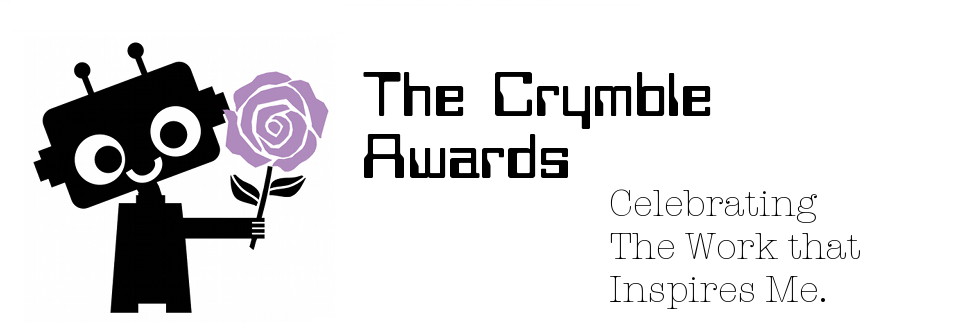
It's important to let people know they've made a difference. Every year the Crymble Awards do just that, by recognizing five people or projects that shaped the way I think about my research.
Winners – 2023
- Arthur Burns, King’s College London.
 Arthur was the academic lead on the Georgian Papers Programme, and his involvement kick started my own foray into the material in that collection, helping me to secure a fellowship at the Royal Archives in 2015 and ultimately leading me to a long-running project on dining, migration, and identity in eighteenth century Britain. He also conducted my PhD upgrade in 2011, and in the years since I’ve had the good fortune of sharing many great conversations with him as a fellow-attendee of the British History in the Long Eighteenth Century Seminar at the Institute of Historical Research, where I once had the honour of chairing one of his research papers. Sadly, Arthur passed away earlier this year, and his cheerfulness, kindness, and intellectual rigour at the seminar are already missed. I’ve been asked to step into his very big shoes as a convenor of the seminar, and I will do my best to bring the same positive contribution that Arthur made for so many years.
Arthur was the academic lead on the Georgian Papers Programme, and his involvement kick started my own foray into the material in that collection, helping me to secure a fellowship at the Royal Archives in 2015 and ultimately leading me to a long-running project on dining, migration, and identity in eighteenth century Britain. He also conducted my PhD upgrade in 2011, and in the years since I’ve had the good fortune of sharing many great conversations with him as a fellow-attendee of the British History in the Long Eighteenth Century Seminar at the Institute of Historical Research, where I once had the honour of chairing one of his research papers. Sadly, Arthur passed away earlier this year, and his cheerfulness, kindness, and intellectual rigour at the seminar are already missed. I’ve been asked to step into his very big shoes as a convenor of the seminar, and I will do my best to bring the same positive contribution that Arthur made for so many years.
- David Stainforth, Grantham Research Institute on Climate Change and the Environment.
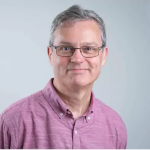 David is a physicist and author of the wonderful new book, Predicting Our Climate Future: What We Know, What We Don’t’ Know, and What We Can’t Know. The book isn’t really about climate change; rather, it uses it as a case study to ask about the nature of knowledge. In accessible but intelligent language, David helps the reader to understand why predicting the future climate is such a complicated task, and why the scientific method struggles with so many independent variables operating at the same time. He covers topics ranging from what statistics are and can or cannot do, what fallacies we tend to impose upon the climate conversation, and how emotion affects our attempts to understand what’s happening. It’s a great book for students thinking about knowledge generation, and I look forward to using it in my own teaching.
David is a physicist and author of the wonderful new book, Predicting Our Climate Future: What We Know, What We Don’t’ Know, and What We Can’t Know. The book isn’t really about climate change; rather, it uses it as a case study to ask about the nature of knowledge. In accessible but intelligent language, David helps the reader to understand why predicting the future climate is such a complicated task, and why the scientific method struggles with so many independent variables operating at the same time. He covers topics ranging from what statistics are and can or cannot do, what fallacies we tend to impose upon the climate conversation, and how emotion affects our attempts to understand what’s happening. It’s a great book for students thinking about knowledge generation, and I look forward to using it in my own teaching.
- Gretchen Gerzina, University of Massachusetts Amhurst.
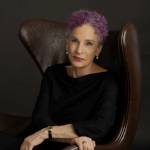 Author of the newly released Black England: A Forgotten Georgian History (2nd edition), this is the history book that I most enjoyed reading the past year. Still too often overlooked by even historians of the eighteenth century, the Black presence in the UK is both deep and very well researched. Gerzina’s book brings to life a number of Black lives through beautifully written mini biographies, deeply researched and extremely well contextualised. The book introduced me to well known characters such as London grocer and first Black voter, Ignatius Sancho, as well as people that were new to me – Ayuba Suleiman Diallo (aka Job ben Soloman) a Muslim cleric enslaved and taken to America, who managed to write a letter to London in 1731 that caught the attention of the right people, who brought him to Britain where he became a figure in London society, before being repatriated back home to Africa. There’s really no excuse for historians to keep Black history in Britain in their blind spot with great works like this one.
Author of the newly released Black England: A Forgotten Georgian History (2nd edition), this is the history book that I most enjoyed reading the past year. Still too often overlooked by even historians of the eighteenth century, the Black presence in the UK is both deep and very well researched. Gerzina’s book brings to life a number of Black lives through beautifully written mini biographies, deeply researched and extremely well contextualised. The book introduced me to well known characters such as London grocer and first Black voter, Ignatius Sancho, as well as people that were new to me – Ayuba Suleiman Diallo (aka Job ben Soloman) a Muslim cleric enslaved and taken to America, who managed to write a letter to London in 1731 that caught the attention of the right people, who brought him to Britain where he became a figure in London society, before being repatriated back home to Africa. There’s really no excuse for historians to keep Black history in Britain in their blind spot with great works like this one.
- Rachel Rich, Leeds Beckett University.
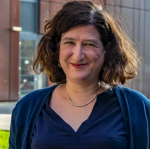 Rachel has been my long-time collaborator on our British Academy funded King’s Dinner project. Happily, this year we managed to get our first publication out of the project, “Three Thousand Dishes on a Georgian Table: The Data of Royal Eating in England, 1788-1813” releasing a dataset of 1.2 million pieces of data about dining in the households of King George III and his son the Prince Regent. These data are part of a bigger effort to understand foreign influences on British culture. For the past year in particular, Rachel and I have been co-authoring a chapter on French culinary influences on British cooking, bringing together her deep knowledge of food history, with my digital humanities skills working with the data we’ve collected. Co-writing is always a challenge, but it’s been a real honour to work with Rachel to craft something so interdisciplinary and I hope that will help nuance the story of Britishness that we all think we know.
Rachel has been my long-time collaborator on our British Academy funded King’s Dinner project. Happily, this year we managed to get our first publication out of the project, “Three Thousand Dishes on a Georgian Table: The Data of Royal Eating in England, 1788-1813” releasing a dataset of 1.2 million pieces of data about dining in the households of King George III and his son the Prince Regent. These data are part of a bigger effort to understand foreign influences on British culture. For the past year in particular, Rachel and I have been co-authoring a chapter on French culinary influences on British cooking, bringing together her deep knowledge of food history, with my digital humanities skills working with the data we’ve collected. Co-writing is always a challenge, but it’s been a real honour to work with Rachel to craft something so interdisciplinary and I hope that will help nuance the story of Britishness that we all think we know.
- Sally Holloway, Oxford Brookes University.
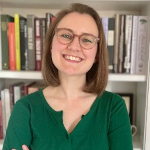 This past year, Sally published a great new article titled ‘The Foods of Love? Food Gifts, Courtship, and Emotions in Long Eighteenth-Century London’, which looks carefully at what and how people used to share food as a means of building relationships. The article arrived on my desk with particularly good timing, as I was also thinking about food gifts in the eighteenth-century royal household, and Sally had already done a lot of the heavy lifting for me in her article, helping to outline motivations and expectations of the gift givers and receivers in ways that have informed my own writing. The work builds upon Sally’s much bigger body of work around love and courtship in eighteenth century Britain, including her book, The Game of Love in Georgian England (2019).
This past year, Sally published a great new article titled ‘The Foods of Love? Food Gifts, Courtship, and Emotions in Long Eighteenth-Century London’, which looks carefully at what and how people used to share food as a means of building relationships. The article arrived on my desk with particularly good timing, as I was also thinking about food gifts in the eighteenth-century royal household, and Sally had already done a lot of the heavy lifting for me in her article, helping to outline motivations and expectations of the gift givers and receivers in ways that have informed my own writing. The work builds upon Sally’s much bigger body of work around love and courtship in eighteenth century Britain, including her book, The Game of Love in Georgian England (2019).
Winners - 2022
- Glen Jacques, Institute of Historical Research.
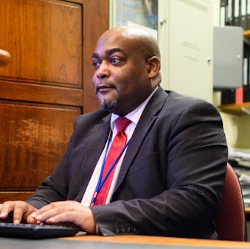 Glen was the friendly and colleagiate face at the IHR in London for far longer than I have been in the country. He manned the front desk, where he always provided warmth and friendliness to anyone coming in. I had the great pleasure of calling him a colleague when I worked at the IHR for a year in 2014, and I know he brought that positivity to both colleagues and library visitors alike, day after day. Sadly, he passed away this year, far too young, and I know I'm not the only one that will miss his presence at the library, and his wonderful giggle and smile.
Glen was the friendly and colleagiate face at the IHR in London for far longer than I have been in the country. He manned the front desk, where he always provided warmth and friendliness to anyone coming in. I had the great pleasure of calling him a colleague when I worked at the IHR for a year in 2014, and I know he brought that positivity to both colleagues and library visitors alike, day after day. Sadly, he passed away this year, far too young, and I know I'm not the only one that will miss his presence at the library, and his wonderful giggle and smile.
- Lisa Smith, University of Essex.
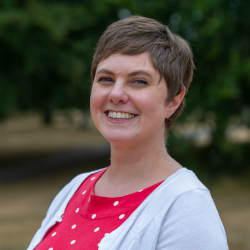 Lisa is one of my collaborators on a long-running project on food, migration, and identity in eighteenth century Britain. Our wider team is currently finishing up a book on the topic, and my task this year has been completing a chapter on how to quantify differences in culinary tastes between various eighteenth century diners, based on data about 40,000 dishes served in a pair of elite households. It's been a big challenge, and one that has become immeasurably easier thanks to an upcoming chapter Lisa wrote, which she shared with me, that considers how one can describe the taste of Early Modern Loneliness. Lisa's approach considered the dominant flavours in the foods people ate at times of solitude and mourning (e.g. funeral cakes), to suggest that loneliness did in fact correlate with a small set of flavours. Her approach helped me think through my own food history data, to better articulate the differences between different individuals' choices at the dinner table.
Lisa is one of my collaborators on a long-running project on food, migration, and identity in eighteenth century Britain. Our wider team is currently finishing up a book on the topic, and my task this year has been completing a chapter on how to quantify differences in culinary tastes between various eighteenth century diners, based on data about 40,000 dishes served in a pair of elite households. It's been a big challenge, and one that has become immeasurably easier thanks to an upcoming chapter Lisa wrote, which she shared with me, that considers how one can describe the taste of Early Modern Loneliness. Lisa's approach considered the dominant flavours in the foods people ate at times of solitude and mourning (e.g. funeral cakes), to suggest that loneliness did in fact correlate with a small set of flavours. Her approach helped me think through my own food history data, to better articulate the differences between different individuals' choices at the dinner table.
- Andreas Kohler, Anne Wunderlich, Zurich University of Applied Sciences, & Eidg. Forschungsanstalt für Wald, Schnee und Landschaft.
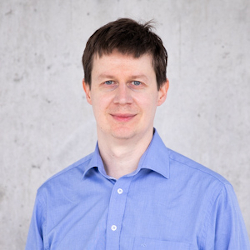
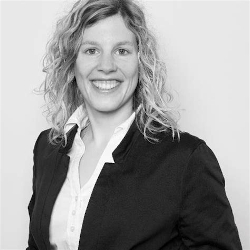 In a similar vein, Andreas and Anne published an article this year: "How Migrants' food tastes shape international agro-food trade”, Applied Economic Letters, 29, 5 (2022) 469-476." The article came up with a really creative way to measure the likelihood that a migrant community would import a key ingredient from home, or if they'd be happy to adopt a local 'close-enough' alternative. They call this a 'dyadic food taste similarity measure' - or, does ingredient X taste close enough to ingredient Y, or do we need to go back to the source? They were able to conclude that when migrant communities moved to a new country with very different food tastes, the amount of imported foodstuffs increased considerably, but that this was not the case when the flavour profiles of the two countries were similar. Their approach was creative, and was a great way to help me think about the connection between migrant flavours and migration patterns in earlier centuries.
In a similar vein, Andreas and Anne published an article this year: "How Migrants' food tastes shape international agro-food trade”, Applied Economic Letters, 29, 5 (2022) 469-476." The article came up with a really creative way to measure the likelihood that a migrant community would import a key ingredient from home, or if they'd be happy to adopt a local 'close-enough' alternative. They call this a 'dyadic food taste similarity measure' - or, does ingredient X taste close enough to ingredient Y, or do we need to go back to the source? They were able to conclude that when migrant communities moved to a new country with very different food tastes, the amount of imported foodstuffs increased considerably, but that this was not the case when the flavour profiles of the two countries were similar. Their approach was creative, and was a great way to help me think about the connection between migrant flavours and migration patterns in earlier centuries.
- Melissa Terras & Lisa Otty, Universities of Edinburgh.
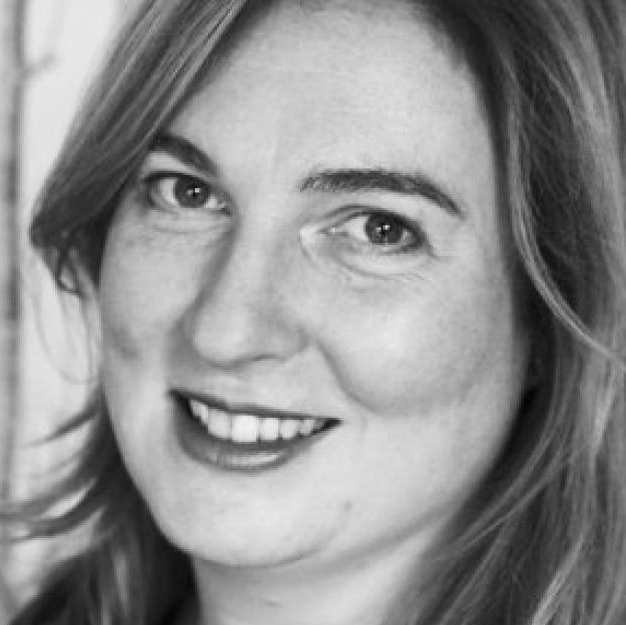
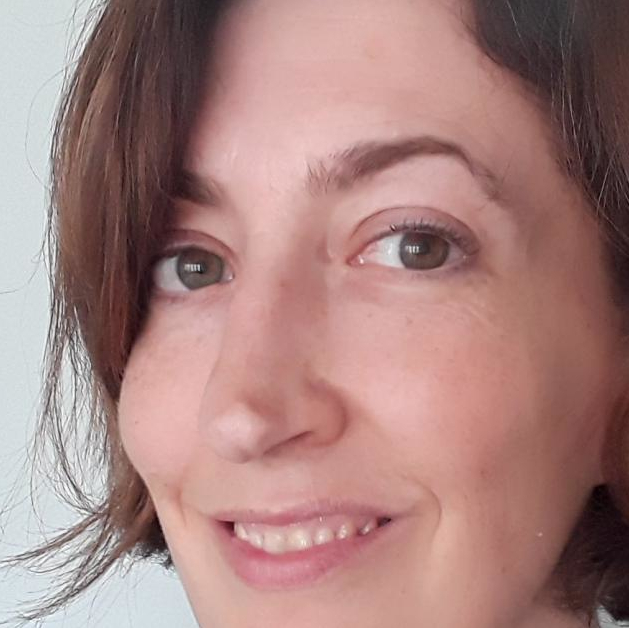 Melissa is the founder of the University of Edinburgh's Centre for Data, Culture and Society, and Lisa is the centre's manager. I've had the tremendous pleasure of watching this centre from afar, and I'm consistently impressed with the quality of their work, and the enthusiasm and competence the project outwards into the world. Their events calendar is a model for bringing digital humanities skills gently into a university community. Their communication with the outside world is always full of energy and excitement, including a great series on '36 Cool Things' they'd achieved in the past year. As far as DH centres go, this is one that's given a lot of us something to aspire to, and I know it's down to the great leadership and wonderful enthusiasm of the wider team there in Edinburgh. You can read their latest annual report on Zenodo for lots of great ideas.
Melissa is the founder of the University of Edinburgh's Centre for Data, Culture and Society, and Lisa is the centre's manager. I've had the tremendous pleasure of watching this centre from afar, and I'm consistently impressed with the quality of their work, and the enthusiasm and competence the project outwards into the world. Their events calendar is a model for bringing digital humanities skills gently into a university community. Their communication with the outside world is always full of energy and excitement, including a great series on '36 Cool Things' they'd achieved in the past year. As far as DH centres go, this is one that's given a lot of us something to aspire to, and I know it's down to the great leadership and wonderful enthusiasm of the wider team there in Edinburgh. You can read their latest annual report on Zenodo for lots of great ideas.
- Maya Dodd & Nidhi Kalra, FLAME University.
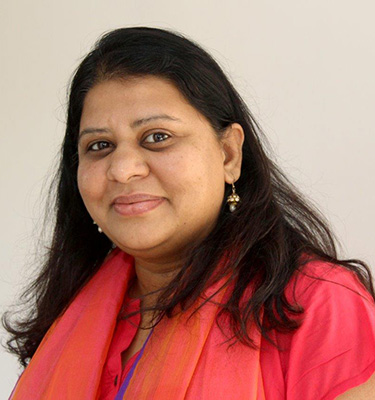
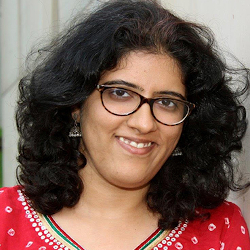 This duo edited the wonderful book, Exploring Digital Humanities in India: Pedagogies, Practices, and Institutional Possibilities (2020). This is, in my view, the best of a series of new 'Digital Humanities HERE' works that have appeared int he last few years. It's an excellent introduction to the ways that digital scholarship has evolved differently in India, and what that means for the field's future. I've found this book incredibly helpful for my teaching (I teach a class on 'Global DH'), and for thinking through some of the ways my projects such as Programming Historian can better serve the needs of users in countries such as India.
This duo edited the wonderful book, Exploring Digital Humanities in India: Pedagogies, Practices, and Institutional Possibilities (2020). This is, in my view, the best of a series of new 'Digital Humanities HERE' works that have appeared int he last few years. It's an excellent introduction to the ways that digital scholarship has evolved differently in India, and what that means for the field's future. I've found this book incredibly helpful for my teaching (I teach a class on 'Global DH'), and for thinking through some of the ways my projects such as Programming Historian can better serve the needs of users in countries such as India.
Winners – 2021
- Martin Eve, Birkbeck University.
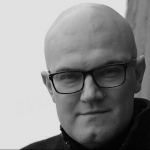 Martin’s infrastructural work in digital humanities has been truly transformative. He’s been a force behind the Open Library of Humanities (OLH), and is a champion of open access publishing in the humanities, which for economic reasons has struggled in the past to free itself from for-profit publishers. Martin’s work to develop a viable business model for OLH, supported voluntarily by university libraries, and designed to make and keep humanities scholarship open, has allowed us at Programming Historian to simply repurpose his hard work and apply it to our own project. We can say unequivocally that it’s worked, enabling us to hire staff sustainably to support our open digital humanities publishing. We never would have achieved that without Martin’s research.
Martin’s infrastructural work in digital humanities has been truly transformative. He’s been a force behind the Open Library of Humanities (OLH), and is a champion of open access publishing in the humanities, which for economic reasons has struggled in the past to free itself from for-profit publishers. Martin’s work to develop a viable business model for OLH, supported voluntarily by university libraries, and designed to make and keep humanities scholarship open, has allowed us at Programming Historian to simply repurpose his hard work and apply it to our own project. We can say unequivocally that it’s worked, enabling us to hire staff sustainably to support our open digital humanities publishing. We never would have achieved that without Martin’s research.
- Kimberly Christen, Washington State University.
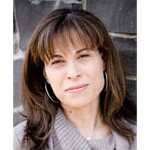 Christen is a scholar of Indigenous knowledge, ethics, and openness based in the western United States. She’s also the author of ‘Does Information Really Want to be Free?: Indigenous Knowledge and the Politics of Open Access’ (2012), which was a foundational piece of research leading to the Mukurtu platform. Mukurtu is a content management system that communities can use to build digital archives; but it’s built to empower those communities to decide how and to whom knowledge is made available. In an age when we’re increasingly taught to believe that information wants to be free (and to say otherwise is greedy or capitalism gone wrong), this was a really useful conversation that allowed me to think through that belief and its connection to a particular culture of which I’m a part.
Christen is a scholar of Indigenous knowledge, ethics, and openness based in the western United States. She’s also the author of ‘Does Information Really Want to be Free?: Indigenous Knowledge and the Politics of Open Access’ (2012), which was a foundational piece of research leading to the Mukurtu platform. Mukurtu is a content management system that communities can use to build digital archives; but it’s built to empower those communities to decide how and to whom knowledge is made available. In an age when we’re increasingly taught to believe that information wants to be free (and to say otherwise is greedy or capitalism gone wrong), this was a really useful conversation that allowed me to think through that belief and its connection to a particular culture of which I’m a part.
- Jennifer Isasi, The Pennsylvania State University.
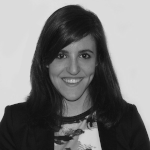 Jenn is a long-time member of Programming Historian, and has been our project’s Communication Lead for the past several years, as well as serving as an editor of Programming Historian en español, and is an author of original tutorials in Spanish. Not only has she put tremendous energy into the project, proving herself a great collaborator, but she’s also highlighted to me the value of multilingualism for digital scholarship. For years she has used her quadrilingualism to help us speak effectively across our English, Spanish, French, and Portuguese teams by curating our multilingual newsletter and social media presence, and by helping the wider team understand when a solution (usually in English) won’t work for teams working in other languages. Her tutorial on using sentiment analysis on Spanish-language novels is the perfect example of that commitment to multilingual digital humanities, and it’s one I’m now using with my students.
Jenn is a long-time member of Programming Historian, and has been our project’s Communication Lead for the past several years, as well as serving as an editor of Programming Historian en español, and is an author of original tutorials in Spanish. Not only has she put tremendous energy into the project, proving herself a great collaborator, but she’s also highlighted to me the value of multilingualism for digital scholarship. For years she has used her quadrilingualism to help us speak effectively across our English, Spanish, French, and Portuguese teams by curating our multilingual newsletter and social media presence, and by helping the wider team understand when a solution (usually in English) won’t work for teams working in other languages. Her tutorial on using sentiment analysis on Spanish-language novels is the perfect example of that commitment to multilingual digital humanities, and it’s one I’m now using with my students. - Amy Kavenagh.
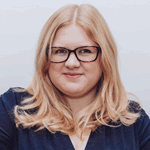 Amy did her history PhD at KCL at the same time I was studying there. She’s since moved on to be one of the UK’s top disability activists. I was fortunate enough to be able to commission her this past year to help Programming Historian identify areas where we could make accessibility improvements to support digital skills learning amongst visually impaired scholars. Amy provided a wonderful and extensive report of how we could improve, ranging from technical fixes that are really just good practice in web design (which we should have been doing anyway), to more holistic suggestions for supporting the development of skills tutorials that solve the types of problems that visually impaired scholars face. Such as quickly determining whether or not a document or set of documents contain the information they’ll need for their research, before investing the time to get out the assistive equipment to really digest it. Thank you Amy for helping us start a journey towards accessibility in self-learning.
Amy did her history PhD at KCL at the same time I was studying there. She’s since moved on to be one of the UK’s top disability activists. I was fortunate enough to be able to commission her this past year to help Programming Historian identify areas where we could make accessibility improvements to support digital skills learning amongst visually impaired scholars. Amy provided a wonderful and extensive report of how we could improve, ranging from technical fixes that are really just good practice in web design (which we should have been doing anyway), to more holistic suggestions for supporting the development of skills tutorials that solve the types of problems that visually impaired scholars face. Such as quickly determining whether or not a document or set of documents contain the information they’ll need for their research, before investing the time to get out the assistive equipment to really digest it. Thank you Amy for helping us start a journey towards accessibility in self-learning. - Richard Deswarte, University of East Anglia.
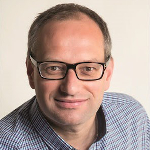 Richard was the first UK-based digital humanities scholar I met, when we crossed paths at a workshop in Toronto back in 2009. When I moved to the UK the following year, Richard became an important part of the scholarly landscape as I experienced it. He was a founding convenor of the Digital History seminar at the Institute of Historical Research, and I got to know him over pints of beer in the post-seminar socials in the years that followed.
Richard was the first UK-based digital humanities scholar I met, when we crossed paths at a workshop in Toronto back in 2009. When I moved to the UK the following year, Richard became an important part of the scholarly landscape as I experienced it. He was a founding convenor of the Digital History seminar at the Institute of Historical Research, and I got to know him over pints of beer in the post-seminar socials in the years that followed.
He was a great centre of the digital history community here in London, and unfortunately for all of us, he passed away this year, unexpectedly and far too soon. Thank you Richard for your friendship and for all of the time and energy you put into our scholarly community.
Winners – 2020
- Quinn Dombrowski, Stanford University.
 Quinn is a digital humanities scholar at Stanford University who is running a course this year on multilingual digital humanities. The course challenges the centrality of the English language in the way we do and express digital humanities research, and as this is something that we at the Programming Historian have been interested in for years, it’s really refreshing to see it out there in a pedagogical space within a university.
Quinn is a digital humanities scholar at Stanford University who is running a course this year on multilingual digital humanities. The course challenges the centrality of the English language in the way we do and express digital humanities research, and as this is something that we at the Programming Historian have been interested in for years, it’s really refreshing to see it out there in a pedagogical space within a university.
Crossing a linguistic barrier is a huge leap for an educator, and I know I’m not the only one hoping to learn some lessons on how to do this effectively, as it’s an area I too hope to enter in the future.
- Ryan Deschamps.
 Ryan contributed an important lesson on correspondence analysis to Programming Historian a few years ago, and I’ve finally had a chance to try it and put it into practice in my own research.
Ryan contributed an important lesson on correspondence analysis to Programming Historian a few years ago, and I’ve finally had a chance to try it and put it into practice in my own research.
Correspondence analysis provides a way to see relationships that different people have to different attributes in a network. For example, who is associated with which clubs or committees, and how that compares to others within the group. Ryan’s tutorial was very clear and provided me with an introduction and an understanding that let me put the approach to immediate (and fruitful) use in my own research on historic dining and its connections to migrant identity (watch this space!). Thanks Ryan for giving our team a clear way to build that knowledge.
- Peter Brathwaite, Black Portraiture.
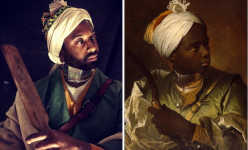 2020 was the terrible pandemic year, and with so many of us forced to adapt to a ‘new normal’ as it was called, we all spent a lot of time engaging with culture remotely and through social media. Peter, a singer by training, produced the most inspiring digital series of reconstructed images of black portraiture as part of the ‘Getty Challenge’ – a fun challenge by the Getty museum to physically recreate historic images with items you had around the house, and post them on social media.
2020 was the terrible pandemic year, and with so many of us forced to adapt to a ‘new normal’ as it was called, we all spent a lot of time engaging with culture remotely and through social media. Peter, a singer by training, produced the most inspiring digital series of reconstructed images of black portraiture as part of the ‘Getty Challenge’ – a fun challenge by the Getty museum to physically recreate historic images with items you had around the house, and post them on social media.
Brathwaite not only managed to create extraordinarily beautiful and creative reconstructions, but he also introduced millions of people to the wealth of black portraiture that’s out there as no one had managed before. It was really an inspiring virtual exhibit and one I will remember as I think about how art, reconstruction, and history can come together productively.
- John Padgett and Christopher Ansell, Universities of Chicago and UC Berkley.
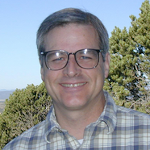
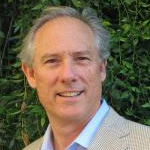 Padgett and Ansell wrote ‘Robust Action and the Rise of the Medici, 1400-1434’, nearly three decades ago now (1993), but it was new to me this year when I started reading about network analysis. My reading of it also came close on the heels of having watched a wonderful dramatic representation of the Florentine Medici family on Netflix, so perhaps I was primed to take an interest. But with my historian’s hat on, this paper was the clearest example I’d seen of a robust and measured historical analysis being put forth with the aid of network analysis, which wouldn’t have been possible otherwise.
Padgett and Ansell wrote ‘Robust Action and the Rise of the Medici, 1400-1434’, nearly three decades ago now (1993), but it was new to me this year when I started reading about network analysis. My reading of it also came close on the heels of having watched a wonderful dramatic representation of the Florentine Medici family on Netflix, so perhaps I was primed to take an interest. But with my historian’s hat on, this paper was the clearest example I’d seen of a robust and measured historical analysis being put forth with the aid of network analysis, which wouldn’t have been possible otherwise.
I often hear historians dismiss network analysis with a claim that it can only show us what we already know. But this paper (and many that came after) showed me that those historians just haven’t read the right scholarship, and that network analysis does have an important role to play in how we understand historical relationships, power, and communication.
- James O’Sullivan, University College Cork.
 James is a digital humanities scholar based in Ireland, and this year he published an article, ‘The Digital Humanities in Ireland’, that took a historical look at how the field has been uniquely sculpted by pressures, forces, and opportunities that are unique to the Irish higher education and political context. It’s a history of the field that reminds us that even in a global world we need to understand local realities.
James is a digital humanities scholar based in Ireland, and this year he published an article, ‘The Digital Humanities in Ireland’, that took a historical look at how the field has been uniquely sculpted by pressures, forces, and opportunities that are unique to the Irish higher education and political context. It’s a history of the field that reminds us that even in a global world we need to understand local realities.
This is something that’s become increasingly at the fore of my own thinking on digital humanities, particularly in light of my multilingual and regional work with the Programming Historian. As an Irish scholar, James is able to provide an insider’s view into Irish DH that lays the groundwork for a much broader set of case studies that help us understand DH and its intersectionality across a wide range of categories.
Winners – 2019
- James Baker, Programming Historian.
 James is one of the many talented colleagues I work with on Programming Historian. Thanks in large part to James’ efforts, this year we’ve managed to make the leap as a team and have incorporated the project as a not-for-profit organisation.This has given us the infrastructure to start ramping up the impact of a project that has already exceeded my wildest expectations.Thanks to James for securing the financial support to set up the company properly, and for doing the hard work behind getting everything going. If you’d like to contribute to our efforts to promote open learning, you can become one of our Patreon subscribers (and we’ll be so grateful).
James is one of the many talented colleagues I work with on Programming Historian. Thanks in large part to James’ efforts, this year we’ve managed to make the leap as a team and have incorporated the project as a not-for-profit organisation.This has given us the infrastructure to start ramping up the impact of a project that has already exceeded my wildest expectations.Thanks to James for securing the financial support to set up the company properly, and for doing the hard work behind getting everything going. If you’d like to contribute to our efforts to promote open learning, you can become one of our Patreon subscribers (and we’ll be so grateful). - Margot Finn, Royal Historical Society.
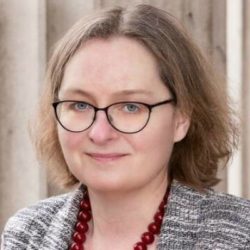 Margot is currently the President of the Royal Historical Society. I’ve had the great pleasure of getting to know her as a fellow-attendee of the British History in the Long Eighteenth Century seminar at the Institute of Historical Research in London, where she is constantly supporting scholars new and seasoned with an ever-patient ear and a refreshing sense of realism about the state of the field. During her tenure as RHS President, Margot has overseen some of the most revolutionary professional self-reflections any body of scholars has ever undertaken. The RHS reports on gender and race have shaken the historical professions, highlighted serious misgivings, and made very sensible and practical suggestions for how we can all work together to build a more inclusive future. I can’t think of any more important work a historian could do at the moment.
Margot is currently the President of the Royal Historical Society. I’ve had the great pleasure of getting to know her as a fellow-attendee of the British History in the Long Eighteenth Century seminar at the Institute of Historical Research in London, where she is constantly supporting scholars new and seasoned with an ever-patient ear and a refreshing sense of realism about the state of the field. During her tenure as RHS President, Margot has overseen some of the most revolutionary professional self-reflections any body of scholars has ever undertaken. The RHS reports on gender and race have shaken the historical professions, highlighted serious misgivings, and made very sensible and practical suggestions for how we can all work together to build a more inclusive future. I can’t think of any more important work a historian could do at the moment. - Emma Battell Lowman, University of Leicester.
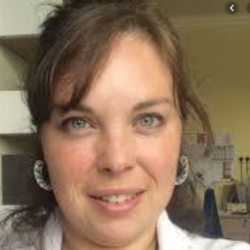 A former colleague and expert on indigenous history in North America, Emma was not only a wonderful person to work with, but also sparked many conversations with me about how to be a better and more inclusive educator. She helped me to think about power dynamics throughout the learning environment, from the classroom itself, to the readings we set (or don’t) and the ways we respond to classroom conversations.She taught me how to talk to students about historical questions of race, and how to help create safe spaces for others to do so. It’s really rare to find someone as passionate and learned as Emma, and her new colleagues at Leicester are so lucky to have her.
A former colleague and expert on indigenous history in North America, Emma was not only a wonderful person to work with, but also sparked many conversations with me about how to be a better and more inclusive educator. She helped me to think about power dynamics throughout the learning environment, from the classroom itself, to the readings we set (or don’t) and the ways we respond to classroom conversations.She taught me how to talk to students about historical questions of race, and how to help create safe spaces for others to do so. It’s really rare to find someone as passionate and learned as Emma, and her new colleagues at Leicester are so lucky to have her. - Arike Oke, Black Cultural Archives.
 This past year, Arike took control of the Black Cultural Archives in London, where I’m a trustee. In a very short period of time, and with the support of a great team, Arike has done wonders to simplify systems, identify new sources of financial stability, and secure the long term future of Britain’s only national heritage centre dedicated to collecting, preserving and celebrating the histories of African and Caribbean people in Britain. I’ve seen how hard she’s had to work this past year, and I hope she and the team manage a well-deserved break over the holidays. The future of Black history in Britain is brighter for her involvement in it.
This past year, Arike took control of the Black Cultural Archives in London, where I’m a trustee. In a very short period of time, and with the support of a great team, Arike has done wonders to simplify systems, identify new sources of financial stability, and secure the long term future of Britain’s only national heritage centre dedicated to collecting, preserving and celebrating the histories of African and Caribbean people in Britain. I’ve seen how hard she’s had to work this past year, and I hope she and the team manage a well-deserved break over the holidays. The future of Black history in Britain is brighter for her involvement in it. - My Peer Reviewers, University of Illinois Press.
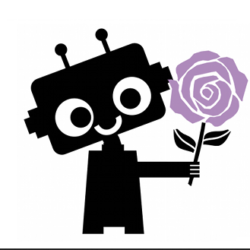 I don’t know who they are, but my forthcoming book on Historical Studies and its relationship with Technology has just gone through a wonderful peer review process that really helped me to improve the work. The suggestions were so carefully constructive, and allowed me to identify and correct a number of problems with the manuscript. When you’ve spent so long with a piece of writing, you can no longer see its shortcomings, and that’s why it’s so important to have professional and collegial scholars willing to offer their feedback.We’ve all had really tactless reviews, so I think it’s important to acknowledge that sometimes that relationship can go really well, and I’m thankful to my reviewers, and to everyone who uses their position as reviewer to lift up the writing of others.
I don’t know who they are, but my forthcoming book on Historical Studies and its relationship with Technology has just gone through a wonderful peer review process that really helped me to improve the work. The suggestions were so carefully constructive, and allowed me to identify and correct a number of problems with the manuscript. When you’ve spent so long with a piece of writing, you can no longer see its shortcomings, and that’s why it’s so important to have professional and collegial scholars willing to offer their feedback.We’ve all had really tactless reviews, so I think it’s important to acknowledge that sometimes that relationship can go really well, and I’m thankful to my reviewers, and to everyone who uses their position as reviewer to lift up the writing of others.
Winners – 2018
- Nell Irvin Painter, The History of White People (2010).
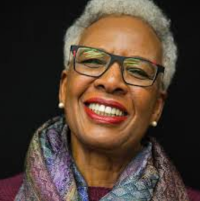 Maybe it’s my white privilege, but I’ve never felt written about in a history book – never felt like an object of study. Nell Irvin Painter’s The History of White People helped provide me with that experience by putting my whiteness under the microscope. From her own experience as a black scholar, she’s able to give a balanced outsider’s perspective to this cultural history of race that quite simply takes the opposite object of study to the one I’m so used to seeing. The book was a valuable reminder to me as a scholar of migration of what it feels like to be written about. It’s something I’ll take with me into my future historical writing.
Maybe it’s my white privilege, but I’ve never felt written about in a history book – never felt like an object of study. Nell Irvin Painter’s The History of White People helped provide me with that experience by putting my whiteness under the microscope. From her own experience as a black scholar, she’s able to give a balanced outsider’s perspective to this cultural history of race that quite simply takes the opposite object of study to the one I’m so used to seeing. The book was a valuable reminder to me as a scholar of migration of what it feels like to be written about. It’s something I’ll take with me into my future historical writing. - David Olusoga, Black and British: A Forgotten History, (2016).
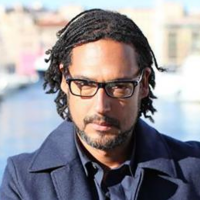 I first came across David Olusoga’s work in a series of BBC documentaries on black history. But his book, Black and British has had a real impact on my teaching in particular. As Olusoga reminds us, black history IS British history, and our collective failure to remember that has left our history artificially tinted white. But this failure is also a source of untapped potential for the next generation of scholars. As so many of us now fight to ‘decolonize’ the history curriculum and make sure it reflects the family experiences of our increasingly diverse bodies of students, work by scholars such as Olusoga will continue to increase in its importance.
I first came across David Olusoga’s work in a series of BBC documentaries on black history. But his book, Black and British has had a real impact on my teaching in particular. As Olusoga reminds us, black history IS British history, and our collective failure to remember that has left our history artificially tinted white. But this failure is also a source of untapped potential for the next generation of scholars. As so many of us now fight to ‘decolonize’ the history curriculum and make sure it reflects the family experiences of our increasingly diverse bodies of students, work by scholars such as Olusoga will continue to increase in its importance. - Edward Ayers, Valley of Shadow (1993-2007): http://valley.lib.virginia.edu/
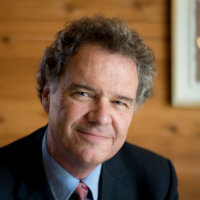 In a matter of months, two groups of strangers sharing a single valley in the American east were convinced to start killing one another. Ed Ayer’s invented archive, Valley of Shadow, brought together resources from two communities in the Shenandoah Valley during the Civil War so that historians and students could read into the lives of these Americans as they turned their ire towards one another. The project itself is not new, having begun in the 1990s. But it was one of the first and certainly one of the most impressive of the early invented archives, creating a collection that had never existed previously. Despite its age, I had not come across the archive until this year when I interviewed Ayers for a book I’m working on called the History of Digital History. It missed me by because of its American content (not my subject area), but I’m glad I now know it well. It’s given me a deep insight into how digital history changed the histories we can and do tell. Thanks to Ed for taking the time to share its history with me.
In a matter of months, two groups of strangers sharing a single valley in the American east were convinced to start killing one another. Ed Ayer’s invented archive, Valley of Shadow, brought together resources from two communities in the Shenandoah Valley during the Civil War so that historians and students could read into the lives of these Americans as they turned their ire towards one another. The project itself is not new, having begun in the 1990s. But it was one of the first and certainly one of the most impressive of the early invented archives, creating a collection that had never existed previously. Despite its age, I had not come across the archive until this year when I interviewed Ayers for a book I’m working on called the History of Digital History. It missed me by because of its American content (not my subject area), but I’m glad I now know it well. It’s given me a deep insight into how digital history changed the histories we can and do tell. Thanks to Ed for taking the time to share its history with me. - Joe Cozens, paper delivered at British History in the Long Eighteenth Century Seminar, Institute of Historical Research, London.
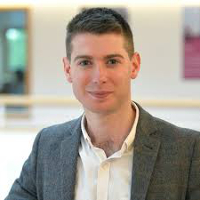 Joe is a recently minted doctor of history, currently teaching at UCL. He’s a fellow eighteenth century historian, and his work on the militia in Britain overlaps substantially with my own interests in migration. Last year he delivered the best seminar paper I’ve ever heard. Not because I necessarily agreed with his argument or evidence, but purely on the basis of his quality of presentation. He had done everything well, from framing the historiographical debates he wanted to engage with, outlining how his approach would give us new knowledge, presenting his evidence clearly and compellingly, and concluding with a reminder of how he had changed our understanding of the field. It was a real master class in giving a seminar paper that I hope I never forget.
Joe is a recently minted doctor of history, currently teaching at UCL. He’s a fellow eighteenth century historian, and his work on the militia in Britain overlaps substantially with my own interests in migration. Last year he delivered the best seminar paper I’ve ever heard. Not because I necessarily agreed with his argument or evidence, but purely on the basis of his quality of presentation. He had done everything well, from framing the historiographical debates he wanted to engage with, outlining how his approach would give us new knowledge, presenting his evidence clearly and compellingly, and concluding with a reminder of how he had changed our understanding of the field. It was a real master class in giving a seminar paper that I hope I never forget. - Sarah Lloyd and Katrina Navickas, Collegial Support.
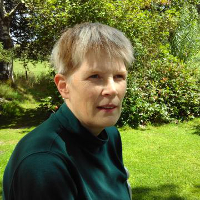
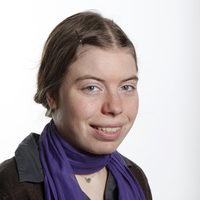 Nobody tells you this when you’re a graduate student, but academia isn’t always a nice environment. Many of the conflicts are interpersonal, and so it’s important to have sources of support to maintain your mental health. For me, some of the most valuable and patient support has come from two colleagues, Sarah Lloyd and Katrina Navickas, who have offered a sympathetic ear, and acted as an outspoken advocate as needed in what can sometimes be a nasty industry.
Nobody tells you this when you’re a graduate student, but academia isn’t always a nice environment. Many of the conflicts are interpersonal, and so it’s important to have sources of support to maintain your mental health. For me, some of the most valuable and patient support has come from two colleagues, Sarah Lloyd and Katrina Navickas, who have offered a sympathetic ear, and acted as an outspoken advocate as needed in what can sometimes be a nasty industry.
Winners – 2017
- Rebecca Koeser, ‘Trusting others to “do the math”‘, Interdisciplinary Science Reviews, vol. 40, no. 4 (2015): 376-392.
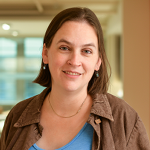 Rebecca Koeser’s digital humanities article, “Trusting others to ‘do the math’” in the Interdisciplinary Science Reviews, has become one of my instant favourites. As my colleagues at the Digital History seminar at the Institute of Historical Research will know, it has given me a go-to question for anyone presenting a paper on a ‘digital tool’ they used in their research. Koeser, the lead developer at Princeton’s Center for Digital Humanities, points out what should be obvious: “researchers effectively trust the work of others anytime they use software tools or custom software”. This is too often overlooked by those conducting research using algorithms they don’t understand. And perhaps ironically, it’s the type of behaviour that the cliometric peer reviewers of 40 years ago would have called out every time. You either understand the mathematics behind your algorithm, or you don’t understand your own research. Garbage in, garbage out. Thanks Rebecca for the reminder to us all.
Rebecca Koeser’s digital humanities article, “Trusting others to ‘do the math’” in the Interdisciplinary Science Reviews, has become one of my instant favourites. As my colleagues at the Digital History seminar at the Institute of Historical Research will know, it has given me a go-to question for anyone presenting a paper on a ‘digital tool’ they used in their research. Koeser, the lead developer at Princeton’s Center for Digital Humanities, points out what should be obvious: “researchers effectively trust the work of others anytime they use software tools or custom software”. This is too often overlooked by those conducting research using algorithms they don’t understand. And perhaps ironically, it’s the type of behaviour that the cliometric peer reviewers of 40 years ago would have called out every time. You either understand the mathematics behind your algorithm, or you don’t understand your own research. Garbage in, garbage out. Thanks Rebecca for the reminder to us all. - Matt Burton, ‘Blogs as Infrastructure for Scholarly Communication‘ [PhD Thesis] (University of Michigan, 2015).
 Matt Burton also got me thinking this year. I read Burton’s 2015 PhD ‘Blogs as Infrastructure for Scholarly Communication’, while doing some research on the history of blogging for a monograph I’ve been writing. Burton’s in depth analysis of blogging helped me step outside of a practice that I had been intimately involved with as a graduate student. Since I spent so much time on the ‘inside’, I had ideas about what I thought I had been doing. But Burton helped me understand the gulf between what my colleagues and I intended, and the function that it actually served for the community. I thank Matt for helping me get the distance needed to do what I hope is some good research on the matter. Don’t let anyone tell you PhD theses can’t be influential! If you spent a good chunk of the 2000s moaning on an academic blog, I’d definitely recommend Burton’s work.
Matt Burton also got me thinking this year. I read Burton’s 2015 PhD ‘Blogs as Infrastructure for Scholarly Communication’, while doing some research on the history of blogging for a monograph I’ve been writing. Burton’s in depth analysis of blogging helped me step outside of a practice that I had been intimately involved with as a graduate student. Since I spent so much time on the ‘inside’, I had ideas about what I thought I had been doing. But Burton helped me understand the gulf between what my colleagues and I intended, and the function that it actually served for the community. I thank Matt for helping me get the distance needed to do what I hope is some good research on the matter. Don’t let anyone tell you PhD theses can’t be influential! If you spent a good chunk of the 2000s moaning on an academic blog, I’d definitely recommend Burton’s work. - David Hitchcock, Vagrancy in English Culture and Society, 1650-1750 (2016).
 I’d also like to single out David Hitchcock and his book, Vagrancy in English Culture and Society, 1650-1750 (2016). I’ve spent the last several years working on a project on 18th century vagrancy, and Hitchcock’s work helped me make some important mental connections between what was happening in the 1780s, and what had been the case a century earlier. This evolution also brought clarity as I sought to understand the ways that the entertaining literary ‘rogue’ of Shakspeare and other plays and stories contrasts with the real impoverished person caught up in a system of forced migration who I look at in my own research. Hitchcock’s work has been a bridge for me, and I think his work will continue to be an important bridge in the historiography for years to come.
I’d also like to single out David Hitchcock and his book, Vagrancy in English Culture and Society, 1650-1750 (2016). I’ve spent the last several years working on a project on 18th century vagrancy, and Hitchcock’s work helped me make some important mental connections between what was happening in the 1780s, and what had been the case a century earlier. This evolution also brought clarity as I sought to understand the ways that the entertaining literary ‘rogue’ of Shakspeare and other plays and stories contrasts with the real impoverished person caught up in a system of forced migration who I look at in my own research. Hitchcock’s work has been a bridge for me, and I think his work will continue to be an important bridge in the historiography for years to come. - Caleb McDaniel, ‘The Programming Historian’ Digital Infrastructure (2014-2017).
 I have to pay homage to Caleb McDaniel, who was a key member of the Programming Historian team between 2014 and 2017. Caleb is a historian of nineteenth century America at Rice University in the United States, and like many of my colleagues on the Programming Historian project, Caleb and I have never met in person. But before he stepped down this year to move onto other projects, Caleb was a calm and professional force at all of our Skype meetings, and was responsible for the technical developments that kept the site both user-friendly and sustainable. Whenever there was a technical challenge facing the team (with its many and seemingly constantly changing demands), Caleb was there with a solution. It meant that we could focus on working with authors and reviewers to bring great content to the readers. Thanks Caleb for your collegiality and brilliant work on the project.
I have to pay homage to Caleb McDaniel, who was a key member of the Programming Historian team between 2014 and 2017. Caleb is a historian of nineteenth century America at Rice University in the United States, and like many of my colleagues on the Programming Historian project, Caleb and I have never met in person. But before he stepped down this year to move onto other projects, Caleb was a calm and professional force at all of our Skype meetings, and was responsible for the technical developments that kept the site both user-friendly and sustainable. Whenever there was a technical challenge facing the team (with its many and seemingly constantly changing demands), Caleb was there with a solution. It meant that we could focus on working with authors and reviewers to bring great content to the readers. Thanks Caleb for your collegiality and brilliant work on the project. - Maria José Afanador-Llach, Víctor Gayol, and Antonio Rojas Castro, The Programming Historian en español (2016-present).
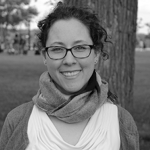
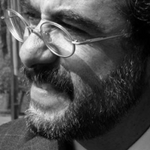
 I also want to thank three other Programming Historian team members who have done some amazing work in the past year. Maria José Afanador-Llach (Universidad de los Andes in Bogotá), Víctor Gayol (El Colegio de Michoacán, A.C. (CPI-CONACYT) México), and Antonio Rojas Castro (Cologne Center for eHumanities) have worked tirelessly with a team of volunteers to start translating the Programming Historian project into Spanish. To date, they have been responsible for the translation of 29 lessons, and have begun to work towards building a Spanish-language community for the project. This has been a major development for digital humanities, which is overwhelmingly English-based, and a great chance for us to branch out into new communities. The opportunity for scholars operating in Spanish to access the skills on offer from our authors is an important development for the field. And we couldn’t have done any of it without the amazing efforts of Maria José, Víctor, and Antonio.
I also want to thank three other Programming Historian team members who have done some amazing work in the past year. Maria José Afanador-Llach (Universidad de los Andes in Bogotá), Víctor Gayol (El Colegio de Michoacán, A.C. (CPI-CONACYT) México), and Antonio Rojas Castro (Cologne Center for eHumanities) have worked tirelessly with a team of volunteers to start translating the Programming Historian project into Spanish. To date, they have been responsible for the translation of 29 lessons, and have begun to work towards building a Spanish-language community for the project. This has been a major development for digital humanities, which is overwhelmingly English-based, and a great chance for us to branch out into new communities. The opportunity for scholars operating in Spanish to access the skills on offer from our authors is an important development for the field. And we couldn’t have done any of it without the amazing efforts of Maria José, Víctor, and Antonio.
Winners – 2016
- Anouk Lang, University of Edinburgh (Twitter: @a_e_lang).
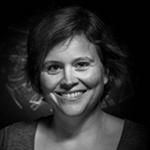 Anouk Lang is a digital humanities and literary scholar at the University of Edinburgh. I had the great pleasure of working with Anouk on a project proposal involving a stylometric analysis of the Old Bailey Proceedings. The Old Bailey Proceedings were digitised many years ago by the Old Bailey Online project. They contain every surviving account of felonious criminal trials heard at London’s Old Bailey courthouse between 1674 and 1913, and are a wonderful view into early modern criminal justice. But despite the best efforts of those furiously scribbling down the proceedings in the courtroom, they are necessarily selective accounts of what happened. There were no electronic recording devices at the time, and thus what we have is a product of several factors, including the needs of the publisher to produce a report that would sell (these were for-profit tales of intrigue, at least in the early days) and the whims of the courtroom reporter (probably including how hungry or bored he was at the time). Our idea was to use a method devised in corpus linguistics known as ‘stylometric analysis’ to measure ways in which the individual scribes responsible for committing the accounts to paper affected the types of evidence available to historians seeking to understand eighteenth and nineteenth century criminal justice. Sadly, our grant proposal was rejected, largely on the basis that the reviewers didn’t like our outreach plan. But I am grateful nonetheless that Anouk introduced me to this exciting new way of understanding early modern texts, and I am hopeful that we’ll yet find a way to make that project come to fruition.
Anouk Lang is a digital humanities and literary scholar at the University of Edinburgh. I had the great pleasure of working with Anouk on a project proposal involving a stylometric analysis of the Old Bailey Proceedings. The Old Bailey Proceedings were digitised many years ago by the Old Bailey Online project. They contain every surviving account of felonious criminal trials heard at London’s Old Bailey courthouse between 1674 and 1913, and are a wonderful view into early modern criminal justice. But despite the best efforts of those furiously scribbling down the proceedings in the courtroom, they are necessarily selective accounts of what happened. There were no electronic recording devices at the time, and thus what we have is a product of several factors, including the needs of the publisher to produce a report that would sell (these were for-profit tales of intrigue, at least in the early days) and the whims of the courtroom reporter (probably including how hungry or bored he was at the time). Our idea was to use a method devised in corpus linguistics known as ‘stylometric analysis’ to measure ways in which the individual scribes responsible for committing the accounts to paper affected the types of evidence available to historians seeking to understand eighteenth and nineteenth century criminal justice. Sadly, our grant proposal was rejected, largely on the basis that the reviewers didn’t like our outreach plan. But I am grateful nonetheless that Anouk introduced me to this exciting new way of understanding early modern texts, and I am hopeful that we’ll yet find a way to make that project come to fruition. - Marina Amaral, ‘In memory of Czesława Kwoka ’ Marina Amaral.com (Twitter: @marinamaral2).
 By her own reckoning, ‘Color has the power to bring life back to the most important moments’. I came across Amaral’s work online a few years ago. She’s one of the most talented historical photo colourists I’ve ever seen, and I use her work to demonstrate the idea of ‘adding value’ to historical sources in a digital environment. I think her work speaks for itself. The most haunting of her interpretations is that of a little Polish girl named Czesława Kwoka who died in the hands of the Nazis at Auschwitz in 1943. The colour brings that little girl right back to life in a way that is profoundly horrifying.
By her own reckoning, ‘Color has the power to bring life back to the most important moments’. I came across Amaral’s work online a few years ago. She’s one of the most talented historical photo colourists I’ve ever seen, and I use her work to demonstrate the idea of ‘adding value’ to historical sources in a digital environment. I think her work speaks for itself. The most haunting of her interpretations is that of a little Polish girl named Czesława Kwoka who died in the hands of the Nazis at Auschwitz in 1943. The colour brings that little girl right back to life in a way that is profoundly horrifying.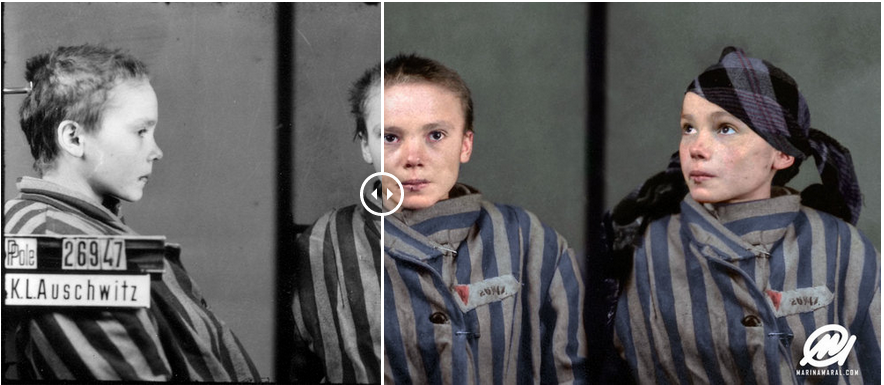 Amaral takes commissions, and given the quality of the work on her website, I hope she’ll be in business for many years to come.
Amaral takes commissions, and given the quality of the work on her website, I hope she’ll be in business for many years to come. - James Smithies, King’s Digital Lab, King’s College London (Twitter: @jamessmithies).
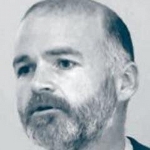 On a much happier note, one of the most important developments in UK digital humanities this year was the launching of the King’s Digital Lab at King’s College London. James Smithies has taken charge of the initiative, which seeks to separate the digital infrastructure work from the digital humanities research done at the university. I’ve had the pleasure of speaking with James on a number of occasions about the Lab, and I’m really impressed with his vision and enthusiasm to work not only with KCL scholars, but people around the world, to produce world-leading digital scholarly projects. I have to say that I’m jealous we don’t have anything like the King’s Digital Lab where I work, but I’m glad that James and his talented team are out there willing to collaborate.
On a much happier note, one of the most important developments in UK digital humanities this year was the launching of the King’s Digital Lab at King’s College London. James Smithies has taken charge of the initiative, which seeks to separate the digital infrastructure work from the digital humanities research done at the university. I’ve had the pleasure of speaking with James on a number of occasions about the Lab, and I’m really impressed with his vision and enthusiasm to work not only with KCL scholars, but people around the world, to produce world-leading digital scholarly projects. I have to say that I’m jealous we don’t have anything like the King’s Digital Lab where I work, but I’m glad that James and his talented team are out there willing to collaborate. - Louise Falcini, ‘Vagrant Lives Project’ University of Reading (Twitter: @louisefalcini).
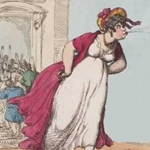 I’ve been working with Louise (along with Tim Hitchcock) on a project called ‘Vagrant Lives’ for the past four years. Louise has an encyclopedic knowledge of London’s administrative history, and an in-depth understanding of its archival record (thanks in part to her many years spent as an archivist at the London Metropolitan Archives). Her attention to detail is also unimpeachable. Her efforts have made possible a substantial dataset of vagrants expelled from Middlesex in the 1770s-80s, and provided nuance to our interpretation of the role of magistrates in administering the vagrancy system. I look forward to continuing our work on vagrancy, I hope for many years to come. And I’m reassured that the quality will be improved for our wonderful collaborator.
I’ve been working with Louise (along with Tim Hitchcock) on a project called ‘Vagrant Lives’ for the past four years. Louise has an encyclopedic knowledge of London’s administrative history, and an in-depth understanding of its archival record (thanks in part to her many years spent as an archivist at the London Metropolitan Archives). Her attention to detail is also unimpeachable. Her efforts have made possible a substantial dataset of vagrants expelled from Middlesex in the 1770s-80s, and provided nuance to our interpretation of the role of magistrates in administering the vagrancy system. I look forward to continuing our work on vagrancy, I hope for many years to come. And I’m reassured that the quality will be improved for our wonderful collaborator. - Adam Dennett, Centre for Advanced Spatial Analysis, UCL (Twitter: @adam_dennett).
 Another one of my collaborators on Vagrant Lives, Adam Dennett is a geographer at the Centre for Advanced Spatial Analysis (CASA) at University College London. I came across Adam’s work when I interviewed for a job a few years ago at CASA that I was patently not qualified for (thank god they hired someone else because the project they created is awesome: http://datashine.org.uk/). Despite my failed interview, the process tipped me off to Adam’s research on ‘gravity models’ of migration which make it possible to determine where flows of migrants between two points (Liverpool and London, or perhaps York and London) are greater or less than we might expect given a range of factors (distance, population, local wage rates, etc). The work was a perfect fit for what we were trying to do on the Vagrant Lives project, to understand lower class migration patterns within England, so I got in touch. I’m very glad I did, because Adam’s introduced me to a whole new way of understanding the history of migration. He’s also been a great collaborator, as has been the theme throughout the Crymble Awards this year! Our work is still ongoing, but I’m excited about the new potential that is only possible through collaboration.
Another one of my collaborators on Vagrant Lives, Adam Dennett is a geographer at the Centre for Advanced Spatial Analysis (CASA) at University College London. I came across Adam’s work when I interviewed for a job a few years ago at CASA that I was patently not qualified for (thank god they hired someone else because the project they created is awesome: http://datashine.org.uk/). Despite my failed interview, the process tipped me off to Adam’s research on ‘gravity models’ of migration which make it possible to determine where flows of migrants between two points (Liverpool and London, or perhaps York and London) are greater or less than we might expect given a range of factors (distance, population, local wage rates, etc). The work was a perfect fit for what we were trying to do on the Vagrant Lives project, to understand lower class migration patterns within England, so I got in touch. I’m very glad I did, because Adam’s introduced me to a whole new way of understanding the history of migration. He’s also been a great collaborator, as has been the theme throughout the Crymble Awards this year! Our work is still ongoing, but I’m excited about the new potential that is only possible through collaboration.
Winners – 2015
- Sharon Howard, ‘London Lives Petition Project’, London Lives, 1690-1800 www.londonlives.org (2015); Sharon Howard ‘Middlesex Convicts Delivered for Transportation, 1785-1792‘, London Lives, 1690-1800 www.londonlives.org (2015).
 Sharon Howard is the long-time project manager of both the Old Bailey Online and London Lives – two of the best historical digital archives ever built. She is also a talented scholar of early modern crime. Sharon’s ‘Crymble Award’ this year however, is for her work compiling historical datasets.This autumn, Sharon released two datasets on Github that she had put together from amidst the broader, messier archive that is London Lives. Firstly, she compiled a set of 10,000 petitions laid before magistrates in the eighteenth century. Secondly, she put together the full known set of records of individuals sent for transportation to Australia between 1785 and 1792. Both datasets are subsets of the London Lives archive, which many scholars will know can be difficult to work with because of the sheer diversity of material found therein. I’ve given Sharon an award for this work, because I think what she’s done here is exemplary practice for curated scholarly datasets. It tells us about her process – why we can trust her work – as well as what we might need to be wary of if using it in a scholarly capacity. But most importantly, Sharon is helping us build towards a more transparent, reproducible, and collaborative historical research environment. Historians all over the world have computer hard drives full of research they’ve done but kept squirrelled away where no one else can benefit from it. Sharon is putting hers out there for us to see and use. This is a good fight, and I commend Sharon for taking a leading role in it.
Sharon Howard is the long-time project manager of both the Old Bailey Online and London Lives – two of the best historical digital archives ever built. She is also a talented scholar of early modern crime. Sharon’s ‘Crymble Award’ this year however, is for her work compiling historical datasets.This autumn, Sharon released two datasets on Github that she had put together from amidst the broader, messier archive that is London Lives. Firstly, she compiled a set of 10,000 petitions laid before magistrates in the eighteenth century. Secondly, she put together the full known set of records of individuals sent for transportation to Australia between 1785 and 1792. Both datasets are subsets of the London Lives archive, which many scholars will know can be difficult to work with because of the sheer diversity of material found therein. I’ve given Sharon an award for this work, because I think what she’s done here is exemplary practice for curated scholarly datasets. It tells us about her process – why we can trust her work – as well as what we might need to be wary of if using it in a scholarly capacity. But most importantly, Sharon is helping us build towards a more transparent, reproducible, and collaborative historical research environment. Historians all over the world have computer hard drives full of research they’ve done but kept squirrelled away where no one else can benefit from it. Sharon is putting hers out there for us to see and use. This is a good fight, and I commend Sharon for taking a leading role in it. - Nick Draper, ‘What does London Owe to Slavery?’ UCL 2010.
 Nick Draper is a research associate on the Legacies of British Lave Ownership project (PI – Catherine Hall). Nick’s work came onto my radar this past spring when I was writing lectures on Britain’s involvement in the slave trade, and I came across a talk of his from 2010 on YouTube, ‘What does London owe to Slavery?‘. In the talk, Nick outlines the extent of slave ownership amongst London families, showing how many families relied upon even one or two slaves as a form of investment income, much the way people use rental properties today.I was also fortunate enough to hear Nick speak at the British History in the Long Eighteenth Century seminar in London, where he provided an update on his research since that earlier talk. As someone who researches the history of immigrants and community in London, I found Nick’s approach, which uses economic history (ledgers of slave owner reparation payments) to tell a wider social story (how middle class Londoners supported their lifestyle), a refreshing look into a significant narrative affecting mid-nineteenth century London. I’d encourage Nick and the rest of the team to be more open with their data (see Sharon Howard’s work above), but I am impressed with the new knowledge this research has thusfar given me. I am also appreciative of the new ways this research has given me of thinking about the attitude of Londoners to those deemed outsiders.
Nick Draper is a research associate on the Legacies of British Lave Ownership project (PI – Catherine Hall). Nick’s work came onto my radar this past spring when I was writing lectures on Britain’s involvement in the slave trade, and I came across a talk of his from 2010 on YouTube, ‘What does London owe to Slavery?‘. In the talk, Nick outlines the extent of slave ownership amongst London families, showing how many families relied upon even one or two slaves as a form of investment income, much the way people use rental properties today.I was also fortunate enough to hear Nick speak at the British History in the Long Eighteenth Century seminar in London, where he provided an update on his research since that earlier talk. As someone who researches the history of immigrants and community in London, I found Nick’s approach, which uses economic history (ledgers of slave owner reparation payments) to tell a wider social story (how middle class Londoners supported their lifestyle), a refreshing look into a significant narrative affecting mid-nineteenth century London. I’d encourage Nick and the rest of the team to be more open with their data (see Sharon Howard’s work above), but I am impressed with the new knowledge this research has thusfar given me. I am also appreciative of the new ways this research has given me of thinking about the attitude of Londoners to those deemed outsiders. - Jennifer Evans, Addressing Gender in Academic Employment.
 This past year I had the great pleasure of working with Jennifer Evans, my colleague at Hertfordshire, on an event, ‘Addressing Gender in Academic Employment‘. The event was a response to the Royal Historical Society’s ‘Report on Gender Equality and Historians in Higher Education‘, published in the spring. Our event took the form of an unconference and allowed us to have open conversations with colleagues about the challenges that gender can pose (or that people feel it can pose) in academia.That event, initiated by Jennifer, has inspired me to explore ways that gender affects digital history scholars and would-be scholars, and has resulted in a lively discussion on invisible barriers in my project, The Programming Historian. Our team there have been working hard to make our project more accessible, and to open doors for women to get more actively involved in what we’re building. Thanks to Jennifer for getting that ball rolling. I hope we’ll make a small difference.
This past year I had the great pleasure of working with Jennifer Evans, my colleague at Hertfordshire, on an event, ‘Addressing Gender in Academic Employment‘. The event was a response to the Royal Historical Society’s ‘Report on Gender Equality and Historians in Higher Education‘, published in the spring. Our event took the form of an unconference and allowed us to have open conversations with colleagues about the challenges that gender can pose (or that people feel it can pose) in academia.That event, initiated by Jennifer, has inspired me to explore ways that gender affects digital history scholars and would-be scholars, and has resulted in a lively discussion on invisible barriers in my project, The Programming Historian. Our team there have been working hard to make our project more accessible, and to open doors for women to get more actively involved in what we’re building. Thanks to Jennifer for getting that ball rolling. I hope we’ll make a small difference. - Nicholas Weber et al., ‘Journal of Open Humanities Data’ E-ISSN: 2059-481X.
 Nic is the editor and chief of the Journal of Open Humanities Data, which published its first scholarly datasets this past September. I’m proud to say that work by my colleagues Louise Falcini, Tim Hithcock, and I, was the first accepted submission to the journal (Adam Crymble, Louise Falcini, Tim Hitchcock, ‘Vagrant Lives: 14,789 Vagrants Processed by the County of Middlesex, 1777-1786’, Journal of Open Humanities Data, Vol. 1 (Sept 2015), DOI: http://doi.org/10.5334/johd.1). I know how incredibly difficult it is to set up an academic publication that tries to change the status quo, so I wish Nic and his colleagues the best on this initiative. I think it’s so important for the future of digital history work that we both peer review (and I will say we received VERY helpful comments from the reviewers) but also acknowledge the hard work that goes into curating and sharing scholarly data.Thanks very much to everyone involved in this project, and I hope we look back on this and see it grow into an industry standard. If you’re working on a dataset of humanities material, please do consider submitting your work to this worthy journal and be part of the movement towards openness in research.
Nic is the editor and chief of the Journal of Open Humanities Data, which published its first scholarly datasets this past September. I’m proud to say that work by my colleagues Louise Falcini, Tim Hithcock, and I, was the first accepted submission to the journal (Adam Crymble, Louise Falcini, Tim Hitchcock, ‘Vagrant Lives: 14,789 Vagrants Processed by the County of Middlesex, 1777-1786’, Journal of Open Humanities Data, Vol. 1 (Sept 2015), DOI: http://doi.org/10.5334/johd.1). I know how incredibly difficult it is to set up an academic publication that tries to change the status quo, so I wish Nic and his colleagues the best on this initiative. I think it’s so important for the future of digital history work that we both peer review (and I will say we received VERY helpful comments from the reviewers) but also acknowledge the hard work that goes into curating and sharing scholarly data.Thanks very much to everyone involved in this project, and I hope we look back on this and see it grow into an industry standard. If you’re working on a dataset of humanities material, please do consider submitting your work to this worthy journal and be part of the movement towards openness in research. - Janus Druz, Art Treachery [Video Game], 2015.
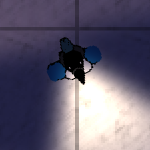
Janus responded to a ‘Game Jam‘ I was hosting with British Library Labs, that challenged video game makers to build a game that helped the Library to tag its 1-million historical image collection through the process of game play. We wanted to make crowdsourcing fun. Janus responded to the challenge with a brilliant game he calls ‘Art Treachery’, in which the player enters an art gallery at night, which is protected by robot guards. Your task is to steal a piece of artwork that matches certain characteristics (eg, a portrait produced between 1850 and 1887). The game is of an amazing quality for something produced in a weeklong competition, and is reminicent of the style of game play and quality of graphics and sound that you’d expect from a Super Nintendo game of the 1990s. Really impressive and ingenius work, and a huge step forward in our attempts to make crowdsourcing a more game-like experience, while at the same time producing useful metadata about the collection material. Thanks Janus for this inspiring work!
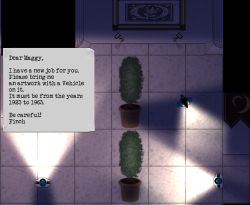
You can download and play the game from his Itch.io Repository.
Winners – 2014
- Bill Endres, ‘Knowledge in Surface Details: Reflectance Transformation Imaging for Studying and Preserving Medieval Manuscripts’, Digital Humanities Congress 2014, Sheffield, UK.
 Digital historians are obsessed with text. They count it, measure it, look for patterns in it. Everything is text, text, text. So it was refreshing to see Bill Endres taking a very different approach to medieval manuscripts. Manuscripts of course contain text, but Bill was interested in the physical object. The three-dimensional object – for even a piece of parchment has three-dimensions.We all know that the way light hits something changes what we can see. If you’re struggling to read something you might change it’s angle relative to a light source, in the chance that the ink may catch the light just right, and reveal its secrets to you. Bill’s work takes that approach, using a method known as Reflectance Transformation Imaging, and photographs a single object dozens of times, moving the light around the room with each new photo. Those photos are then modeled in the computer so that a user can view the manuscript under just about any possible light condition, revealing hidden features that you cannot see when the light comes head-on, as is the case with most flatbed scanners. Bill’s talk really highlighted for me the importance of thinking about historical objects, and to think more closely about what is lost during the digitizing process. Thanks to Bill for introducing me to that discussion.
Digital historians are obsessed with text. They count it, measure it, look for patterns in it. Everything is text, text, text. So it was refreshing to see Bill Endres taking a very different approach to medieval manuscripts. Manuscripts of course contain text, but Bill was interested in the physical object. The three-dimensional object – for even a piece of parchment has three-dimensions.We all know that the way light hits something changes what we can see. If you’re struggling to read something you might change it’s angle relative to a light source, in the chance that the ink may catch the light just right, and reveal its secrets to you. Bill’s work takes that approach, using a method known as Reflectance Transformation Imaging, and photographs a single object dozens of times, moving the light around the room with each new photo. Those photos are then modeled in the computer so that a user can view the manuscript under just about any possible light condition, revealing hidden features that you cannot see when the light comes head-on, as is the case with most flatbed scanners. Bill’s talk really highlighted for me the importance of thinking about historical objects, and to think more closely about what is lost during the digitizing process. Thanks to Bill for introducing me to that discussion. - Melodee Beals, ‘XMLing my Way to Data Management; or, What should I do with all my old notes’ MH Beals.
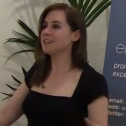 Historians expend so much energy structuring historical material so that they can interrogate it throughly. The outputs of this work thus far has been peer reviewed journal articles, and scholarly monographs. The structured data the historian has created is shared far too infrequently. It is considered a biproduct of the more important work – the writing of history. But some historians are beginning to challenge that. Melodee Beals is one of those scholars. Earlier this year, so released a large set of transcribed newspaper articles that she had put together in the course of her studies. By releasing this material, she’s put herself forth as a leader in a movement that promotes sharing, and reduces the wasteful process by which historians replicate each other’s efforts, transcribing work that has already been transcribed, or structuring data that has already been structured. Melodee’s decision to share her research has inspired me to be more open with my own research data. Thanks for that inspiration.
Historians expend so much energy structuring historical material so that they can interrogate it throughly. The outputs of this work thus far has been peer reviewed journal articles, and scholarly monographs. The structured data the historian has created is shared far too infrequently. It is considered a biproduct of the more important work – the writing of history. But some historians are beginning to challenge that. Melodee Beals is one of those scholars. Earlier this year, so released a large set of transcribed newspaper articles that she had put together in the course of her studies. By releasing this material, she’s put herself forth as a leader in a movement that promotes sharing, and reduces the wasteful process by which historians replicate each other’s efforts, transcribing work that has already been transcribed, or structuring data that has already been structured. Melodee’s decision to share her research has inspired me to be more open with my own research data. Thanks for that inspiration. - Lucy Delap, Job interview at King’s College London.
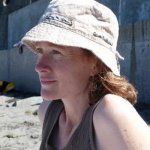 I found myself on the job market earlier this year, and thanks to a lot of help and advice from a large number of people, I pulled it off and got the job. But not everyone who helped me did so knowingly. Lucy Delap was instrumental in my interview success, though we’ve never spoken. I had attended Lucy’s job talk at King’s College London while I was a PhD student, and her performance – for it could be described as nothing else – epitomized everything a job talk should be. Within seconds, the whole room was hanging on her every word. They liked her personally. Wanted to be her friend. Wanted to work with her. She put us immediately at ease. She came across as friendly, competent, intelligent, and with vision. She spoke with clarity. Made eye contact with everyone. She won the room.She also got the job.You win or lose a room within 5 seconds. Lucy demonstrated that perfectly for me, and it’s changed the way I approached not only my own job talk, but also the way I approach new groups of students.
I found myself on the job market earlier this year, and thanks to a lot of help and advice from a large number of people, I pulled it off and got the job. But not everyone who helped me did so knowingly. Lucy Delap was instrumental in my interview success, though we’ve never spoken. I had attended Lucy’s job talk at King’s College London while I was a PhD student, and her performance – for it could be described as nothing else – epitomized everything a job talk should be. Within seconds, the whole room was hanging on her every word. They liked her personally. Wanted to be her friend. Wanted to work with her. She put us immediately at ease. She came across as friendly, competent, intelligent, and with vision. She spoke with clarity. Made eye contact with everyone. She won the room.She also got the job.You win or lose a room within 5 seconds. Lucy demonstrated that perfectly for me, and it’s changed the way I approached not only my own job talk, but also the way I approach new groups of students. - Helen Barefoot, ‘Teaching and Supporting Learning’, University of Hertfordshire.
 Helen teaches pedagogy at the University of Hertfordshire, and I was a student in her class this past autumn. Like all new lecturers, I had to take a course over three consecutive days. There were about 50 of us in the class. On day one Helen started with the standard: tell us your name and something interesting about yourself. On day two, she stood at the front of the room waiting for us to enter around a blind corner. As each student came round that corner, she greeted them by name. All 50 of us. Without even a second’s delay.We all learned a useful lesson that morning on the importance of learning the names of your students. It made us feel valued. Like our teacher cared about us. And it was taught by example, from the front of a lecture hall. A high-pressure trick, but executed perfectly. That’s not all Helen taught me about teaching. But it was bloody impressive, and I don’t imagine I’ll forget it.
Helen teaches pedagogy at the University of Hertfordshire, and I was a student in her class this past autumn. Like all new lecturers, I had to take a course over three consecutive days. There were about 50 of us in the class. On day one Helen started with the standard: tell us your name and something interesting about yourself. On day two, she stood at the front of the room waiting for us to enter around a blind corner. As each student came round that corner, she greeted them by name. All 50 of us. Without even a second’s delay.We all learned a useful lesson that morning on the importance of learning the names of your students. It made us feel valued. Like our teacher cared about us. And it was taught by example, from the front of a lecture hall. A high-pressure trick, but executed perfectly. That’s not all Helen taught me about teaching. But it was bloody impressive, and I don’t imagine I’ll forget it. - David McCandless, Information is Beautiful.
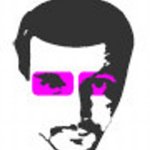 David is a data visualization expert, and he’s one of the big names in the business. I came across his first book, Information is Beautiful, this year, and he’s become a favourite of mine with the way he tells stories through data. His books are the coffee table conversation pieces in my house, and they’ve done their job wonderfully. He’s made me think beyond the bar chart, and though he’s not a historian, he’s led me to consider different ways that I could tell the past than through the written word alone. David’s work has also set me out looking for the work of other data vis artists, which has enriched my twitter feed considerably as I begin to explore that exciting world. I’m looking forward to seeing more from David, and to working more directly with data visualization myself.
David is a data visualization expert, and he’s one of the big names in the business. I came across his first book, Information is Beautiful, this year, and he’s become a favourite of mine with the way he tells stories through data. His books are the coffee table conversation pieces in my house, and they’ve done their job wonderfully. He’s made me think beyond the bar chart, and though he’s not a historian, he’s led me to consider different ways that I could tell the past than through the written word alone. David’s work has also set me out looking for the work of other data vis artists, which has enriched my twitter feed considerably as I begin to explore that exciting world. I’m looking forward to seeing more from David, and to working more directly with data visualization myself.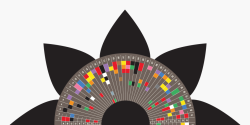
Winners – 2013
- Jorge Cham and Meg Rosenburg, ‘Big Data + Old History’ PhD Comics.

 Belovedly known for his academic comic series, PhD Comics, Jorge Cham challenged PhD students to describe their thesis in two minutes, with the promise that he’d animate the twelve best entries. I was fortunate enough to be selected as one of the winners, and I’m thrilled by how Cham and his colleague Meg Rosenburg transformed my words into an engaging two-minute cartoon. I’ve had great feedback from the video (I think a couple people even think I’m cool now), and it’s certainly showed me that the written word is not the only way we can share stories about the past.Thanks very much to both Jorge and Meg for including me in the project. It was a great experience and a lot of fun.
Belovedly known for his academic comic series, PhD Comics, Jorge Cham challenged PhD students to describe their thesis in two minutes, with the promise that he’d animate the twelve best entries. I was fortunate enough to be selected as one of the winners, and I’m thrilled by how Cham and his colleague Meg Rosenburg transformed my words into an engaging two-minute cartoon. I’ve had great feedback from the video (I think a couple people even think I’m cool now), and it’s certainly showed me that the written word is not the only way we can share stories about the past.Thanks very much to both Jorge and Meg for including me in the project. It was a great experience and a lot of fun. - Adam Frost and Tobias Sturt, The Guardian Data Blog.

 In March I attended a one-day masterclass hosted by The Guardian newspaper on data visualization and visual storytelling. My award goes to two of the presenters on the day: Adam Frost and Tobias Sturt, both of whom worked at the time for the Guardian’s Digital Agency (for-hire Guardian visualization experts). The pair hosted a great session on how the team at the Guardian Data Blog take raw data to the finished products which capture our imagination.I’d definitely recommend the workshop – though I note they’ve raised the price from £99 to £250 since I attended. Not only did I see some great data visualization examples, but it got me thinking about the importance of answering the oft-ignored: who cares? As Frost noted that morning, without clarity and persuasion, data is just a spreadsheet. Visualization is about bringing data to life for an audience, and I’m grateful for Frost and Sturt for making that so clear for me. The graphs and visualizations I’ve been creating for my thesis have changed markedly as a result of their work, and I like to think it has been for the better.
In March I attended a one-day masterclass hosted by The Guardian newspaper on data visualization and visual storytelling. My award goes to two of the presenters on the day: Adam Frost and Tobias Sturt, both of whom worked at the time for the Guardian’s Digital Agency (for-hire Guardian visualization experts). The pair hosted a great session on how the team at the Guardian Data Blog take raw data to the finished products which capture our imagination.I’d definitely recommend the workshop – though I note they’ve raised the price from £99 to £250 since I attended. Not only did I see some great data visualization examples, but it got me thinking about the importance of answering the oft-ignored: who cares? As Frost noted that morning, without clarity and persuasion, data is just a spreadsheet. Visualization is about bringing data to life for an audience, and I’m grateful for Frost and Sturt for making that so clear for me. The graphs and visualizations I’ve been creating for my thesis have changed markedly as a result of their work, and I like to think it has been for the better.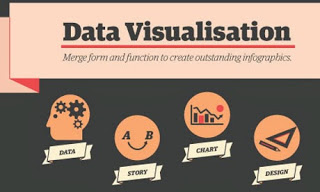
- Jelle van Lottum, ‘Labour Migration and Economic Performance: London and the Ranstad, c. 1600-1800’, The Economic History Review. Vol. 64, No. 2 (2011): 531-570.
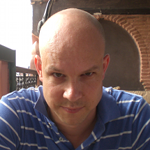 Van Lottum is a historian at the University of Birmingham, but this paper was part of his British Academy fellowship at the University of Cambridge a few years ago. I stumbled across Van Lottum’s article when researching some background material for an paper I was preparing with some colleagues on lower-class migration into eighteenth century London. It was a bit of a eureka moment for me, as I had been fumbling around in a new field, unsure even of what I’d been looking to do, and this article provided me with exactly the type of framework I was after. Since reading this paper I’ve been drawn into an entirely different side of history, and read much more widely than I might ever have done, deliving deeply into the work of some talented economic historians and historical demographers. I’ve found these new fields a wonderful compliment to my interest in social history, and I owe that in part to what turned out to be a great article by van Lottum.
Van Lottum is a historian at the University of Birmingham, but this paper was part of his British Academy fellowship at the University of Cambridge a few years ago. I stumbled across Van Lottum’s article when researching some background material for an paper I was preparing with some colleagues on lower-class migration into eighteenth century London. It was a bit of a eureka moment for me, as I had been fumbling around in a new field, unsure even of what I’d been looking to do, and this article provided me with exactly the type of framework I was after. Since reading this paper I’ve been drawn into an entirely different side of history, and read much more widely than I might ever have done, deliving deeply into the work of some talented economic historians and historical demographers. I’ve found these new fields a wonderful compliment to my interest in social history, and I owe that in part to what turned out to be a great article by van Lottum. - Anne Alexander, Social Media Knowledge Exchange (SMKE).
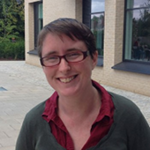 Anne wins an award for standing up for students’ fiscal needs. SMKE was a year-long project that invited students to pitch an idea related to social media and academia. Winners were offered a £500 budget and £500 for themselves. As someone funding my own education, this was an incredibly important opportunity for me. There are so many organizations out there offering funding to pay for conference travel, or for student-run initiatives to pay to bring in senior speakers, or even for expenses to go visit libraries. And yet I get the sense that there’s a desperate attempt to ensure students aren’t trusted with any money they might use to live on. Those who consider themselves older and wiser and who control the purse-strings of granting agencies of all sizes seem convinced that any money they give directly to students will go straight to the pub. I spent mine on my tuition bill. And I thank Anne heartily for giving me that opportunity by taking a stand and putting value on student work.I incorporated Anne’s idea into a workshop I hosted last month, passing on the bulk of the funding I had to early career students who gave talks at the event. I’d challenge others to do the same. Don’t reimburse travel for students; offer grants or honorariums to students for participating, and empower them to make their own decisions about how they get there or where they stay. Thanks to Anne for showing me that.
Anne wins an award for standing up for students’ fiscal needs. SMKE was a year-long project that invited students to pitch an idea related to social media and academia. Winners were offered a £500 budget and £500 for themselves. As someone funding my own education, this was an incredibly important opportunity for me. There are so many organizations out there offering funding to pay for conference travel, or for student-run initiatives to pay to bring in senior speakers, or even for expenses to go visit libraries. And yet I get the sense that there’s a desperate attempt to ensure students aren’t trusted with any money they might use to live on. Those who consider themselves older and wiser and who control the purse-strings of granting agencies of all sizes seem convinced that any money they give directly to students will go straight to the pub. I spent mine on my tuition bill. And I thank Anne heartily for giving me that opportunity by taking a stand and putting value on student work.I incorporated Anne’s idea into a workshop I hosted last month, passing on the bulk of the funding I had to early career students who gave talks at the event. I’d challenge others to do the same. Don’t reimburse travel for students; offer grants or honorariums to students for participating, and empower them to make their own decisions about how they get there or where they stay. Thanks to Anne for showing me that. - Shoaib Sufi, Neil Chue Hong, Aleksandra Pawlik, et. al. Software Sustainability Institute (SSI).


 This year’s final award goes to the team at the Software Sustainability Institute, based at the University of Edinburgh. Until I saw the call put out by the SSI looking for fellows late last year, I had never even given a thought to the idea of software sustainability. Since applying (and winning!) sustainability has been a major part of my strategy for all of my work. I was introduced to a wonderful network of people in fields ranging from engineering and physics, to computer science and geography, all who are struggling to ensure their work is useable for the long-term. As a society we put so much time and money into building tools and programmes to assist our research, but so little into planning for the future of that work.As part of my fellowship I was given £3,000 of funding, which I used to host an event, Sustainable History: Ensuring Today’s Digital History Lasts. The event was held at the Institute of Historical Research in London (cohosted by Jane Winters and Tim Hitchcock) and brought together a great group of scholars and information professionals to discuss what historians can and should be doing to ensure their projects and their data survives. It’s a little question, but one I’m glad the team at the SSI challenged me to think about.
This year’s final award goes to the team at the Software Sustainability Institute, based at the University of Edinburgh. Until I saw the call put out by the SSI looking for fellows late last year, I had never even given a thought to the idea of software sustainability. Since applying (and winning!) sustainability has been a major part of my strategy for all of my work. I was introduced to a wonderful network of people in fields ranging from engineering and physics, to computer science and geography, all who are struggling to ensure their work is useable for the long-term. As a society we put so much time and money into building tools and programmes to assist our research, but so little into planning for the future of that work.As part of my fellowship I was given £3,000 of funding, which I used to host an event, Sustainable History: Ensuring Today’s Digital History Lasts. The event was held at the Institute of Historical Research in London (cohosted by Jane Winters and Tim Hitchcock) and brought together a great group of scholars and information professionals to discuss what historians can and should be doing to ensure their projects and their data survives. It’s a little question, but one I’m glad the team at the SSI challenged me to think about.
Winners – 2012
- Julia Flanders, “Faircite: towards a fairer culture of citation in academia”
 I emailed the journal Digital Humanities Quarterly back in January to suggest that the journal adopt fairer citation practices that would see a wider range of team members on collaborative digital humanities projects credited publicly for their work. The response I got from Julia the editor was astounding, full of energy and enthusiasm. She encouraged me to pursue the matter further, gave the idea a catchy name, and even helped put together a formal proposal for the Alliance of Digital Humanities Organizations which she supported and presented. I’m happy to report a number of projects have responded positively to Faircite and have begun offering more inclusive suggested citations that acknowledge the work of their team members – a trend I hope to see continue to grow. (See the Old Bailey Online, and Voyant Tools for examples). Thanks to Julia for her support.
I emailed the journal Digital Humanities Quarterly back in January to suggest that the journal adopt fairer citation practices that would see a wider range of team members on collaborative digital humanities projects credited publicly for their work. The response I got from Julia the editor was astounding, full of energy and enthusiasm. She encouraged me to pursue the matter further, gave the idea a catchy name, and even helped put together a formal proposal for the Alliance of Digital Humanities Organizations which she supported and presented. I’m happy to report a number of projects have responded positively to Faircite and have begun offering more inclusive suggested citations that acknowledge the work of their team members – a trend I hope to see continue to grow. (See the Old Bailey Online, and Voyant Tools for examples). Thanks to Julia for her support. - Luke Blaxill, “Quantifying the Language of British Politics 1880-1914” Paper presented at King’s College London, 2 November 2012.
 Luke’s a (recently) former colleague of mine at King’s College London. His work ties together corpus linguistics with historical inquiry in a way that’s so simple, yet so effective. What I love about Luke’s research is that his distant reading approach to history has so effectively challenged conventional historical wisdom in a way that close reading could never highlight. I’ve incorporated many of the principles and tools I learned of through Luke into my own research. You can hear a version of his talk on the IHR History Spot archive. For those of you looking for a digital humanist with some great textual analysis skills, you’ll be happy to hear Luke has recently received his doctorate in history and digital humanities, and I’m sure he’d love to hear from you!
Luke’s a (recently) former colleague of mine at King’s College London. His work ties together corpus linguistics with historical inquiry in a way that’s so simple, yet so effective. What I love about Luke’s research is that his distant reading approach to history has so effectively challenged conventional historical wisdom in a way that close reading could never highlight. I’ve incorporated many of the principles and tools I learned of through Luke into my own research. You can hear a version of his talk on the IHR History Spot archive. For those of you looking for a digital humanist with some great textual analysis skills, you’ll be happy to hear Luke has recently received his doctorate in history and digital humanities, and I’m sure he’d love to hear from you! - Peter King, “Ethnicity, Prejudice and Justice, The Treatment of the Irish at the Old Bailey 1750-1825” (under review).
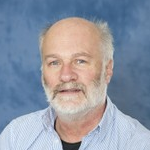 It’s always a little frustrating to find someone’s just published the very topic you had been working on. But in this case, the experience turned out much better than I could have hoped for. Peter King is a Professor of History at Leicester University and very willingly shared his pre-publication work with me, has answered questions, provided advice, and even made a trip down to London to watch me present a response paper to his work. I think it’s fair to say he has been amicably combative about my work, and has pushed me to continue to improve.
It’s always a little frustrating to find someone’s just published the very topic you had been working on. But in this case, the experience turned out much better than I could have hoped for. Peter King is a Professor of History at Leicester University and very willingly shared his pre-publication work with me, has answered questions, provided advice, and even made a trip down to London to watch me present a response paper to his work. I think it’s fair to say he has been amicably combative about my work, and has pushed me to continue to improve.
- Andrew Marr, The Open University et al. “Andrew Marr’s History of the World” BBC One. Television Series: October-November 2012.
 This one may perhaps look like the “one of these things just doesn’t belong here” entry. Andrew Marr is a BBC journalist who presented an eight-part “world history” this autumn in the UK. I found myself unable to get enough. The team behind the series did an amazing job of finding specific examples to illustrate broader themes that captured what was unique about entire civilizations. It forced me to consider the scope of my own piddly 20 year local study and how that fits into the broader spectrum of human history. Kudos not just to Andrew Marr, but also to the Open University and everyone involved in the project. I’m sure there were many of you.
This one may perhaps look like the “one of these things just doesn’t belong here” entry. Andrew Marr is a BBC journalist who presented an eight-part “world history” this autumn in the UK. I found myself unable to get enough. The team behind the series did an amazing job of finding specific examples to illustrate broader themes that captured what was unique about entire civilizations. It forced me to consider the scope of my own piddly 20 year local study and how that fits into the broader spectrum of human history. Kudos not just to Andrew Marr, but also to the Open University and everyone involved in the project. I’m sure there were many of you.
- Fred Gibbs and Miriam Posner “The Programming Historian 2“
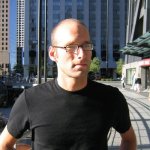
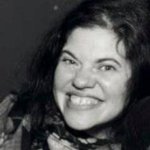 Fred and Miriam joined the Programming Historian 2 team of which I’m a part right at the beginning and have been been invaluable to getting the project off the ground. Miriam has taken on the role of our outreach officer, and Fred one of our general editors. Thanks very much to both of them for all their hard work on the project. (And though I said I wouldn’t re-award past winners, I feel compelled to mention that William J. Turkel and Jeremy Boggs are also instrumental team members!).
Fred and Miriam joined the Programming Historian 2 team of which I’m a part right at the beginning and have been been invaluable to getting the project off the ground. Miriam has taken on the role of our outreach officer, and Fred one of our general editors. Thanks very much to both of them for all their hard work on the project. (And though I said I wouldn’t re-award past winners, I feel compelled to mention that William J. Turkel and Jeremy Boggs are also instrumental team members!).
Winners – 2011
- Tim Hitchcock and William J. Turkel, “The Old Bailey Proceedings, 1674-1913: data mining for evidence of court behaviour” (paper presented at the Digital History Seminar, the Institute for Historical Research. London, 16 May, 2011).

 This paper and its accompanying visualisations (see the pdf for the whole paper), takes traditional historical research questions down the path of large-scale analysis. Using the proceedings of the Old Bailey, Turkel and Hitchcock were able to step back from the content of the transcripts, and looked at the proceedings as data rather than something to be read. The result of the study was some interesting new insights into court room practices in the mid nineteenth century that challenged previous conclusions.These insights were only evident through a large-scale visualisation that plotted the lengths of each trial transcripts by year on a logarithmic scale. That may sound complicated, but it’s really quite simple, and that’s what makes it so great. Anyone looking at the graph is clearly drawn to the same conclusions as the researchers: something funny is going on in the mid nineteenth century. Unlike with so much historical research, the data told the researchers where the question was, rather than the researchers seeking an answer to a predefined question. This serendipitous approach is something for which I think the world is ready for more.Obviously as historians we cannot merely stop reading content when forming our conclusions about the past; however, I think this paper demonstrates that content isn’t the only way of learning new things. Sometimes, as in this case, it’s the word-length of the trial transcripts that points us towards new knowledge. And we shouldn’t be afraid to get off the beaten path a little, and experiment with content in ways that it perhaps was never intended to be used by its original creators.On Twitter: @williamjturkel and @TimHitchcock
This paper and its accompanying visualisations (see the pdf for the whole paper), takes traditional historical research questions down the path of large-scale analysis. Using the proceedings of the Old Bailey, Turkel and Hitchcock were able to step back from the content of the transcripts, and looked at the proceedings as data rather than something to be read. The result of the study was some interesting new insights into court room practices in the mid nineteenth century that challenged previous conclusions.These insights were only evident through a large-scale visualisation that plotted the lengths of each trial transcripts by year on a logarithmic scale. That may sound complicated, but it’s really quite simple, and that’s what makes it so great. Anyone looking at the graph is clearly drawn to the same conclusions as the researchers: something funny is going on in the mid nineteenth century. Unlike with so much historical research, the data told the researchers where the question was, rather than the researchers seeking an answer to a predefined question. This serendipitous approach is something for which I think the world is ready for more.Obviously as historians we cannot merely stop reading content when forming our conclusions about the past; however, I think this paper demonstrates that content isn’t the only way of learning new things. Sometimes, as in this case, it’s the word-length of the trial transcripts that points us towards new knowledge. And we shouldn’t be afraid to get off the beaten path a little, and experiment with content in ways that it perhaps was never intended to be used by its original creators.On Twitter: @williamjturkel and @TimHitchcock - Tim Sherratt, “Discontents” blog.
 One of the few research blogs I still actually read. Sherratt has done extensive work combining Python with datamining as a way of extracting useful information from online sources. He lives and works in Australia and has done extensive work with the Trove newspaper database, which contains transcribed versions of historical Australian newspapers. Not only is the work unique, in that he’s looking at sources in a way most scholars don’t bother, he is very open with what he’s doing and how he does it, making the blog an excellent learning tool for those looking to expand into the realm of digital history. This is of course the style of blogging that Bill Turkel championed on his now retired “Digital History Hacks“.Sherratt’s work has taught me more this year than just about anything else I’ve ready and I hope he continues to provide more into 2012.
One of the few research blogs I still actually read. Sherratt has done extensive work combining Python with datamining as a way of extracting useful information from online sources. He lives and works in Australia and has done extensive work with the Trove newspaper database, which contains transcribed versions of historical Australian newspapers. Not only is the work unique, in that he’s looking at sources in a way most scholars don’t bother, he is very open with what he’s doing and how he does it, making the blog an excellent learning tool for those looking to expand into the realm of digital history. This is of course the style of blogging that Bill Turkel championed on his now retired “Digital History Hacks“.Sherratt’s work has taught me more this year than just about anything else I’ve ready and I hope he continues to provide more into 2012.On Twitter: @wragge
- Ben Schmidt, “Sapping Attention” blog.
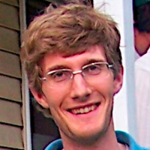 Like Sherratt, Ben Schmidt keeps a research blog that chronicles his own work and the challenges that he has to overcome. Schmidt is working on a PhD in history at Princeton and his work into linguistic analysis is both far beyond what I myself am capable of, as well as creative and intriguing to follow, even for a non-specialist like me. Schmidt also has a talent for extraordinarily beautiful visualisations which are both technically complicated, but semantically transparent, supplementing his text with an effective means of showing how the data supports the conclusions. Some great examples are in his posts, “Comparing Corpuses by Word Use” and “Predicting publication year and generational language shift“.I sincerely wish more digital historians – myself included – would keep such open and inspirational research logs as Schmidt and Sherratt that celebrates not only the conclusions that are of interest to historians studying similar topics, but to all digital historians who are interested in learning new ways to interrogate and understand the past.
Like Sherratt, Ben Schmidt keeps a research blog that chronicles his own work and the challenges that he has to overcome. Schmidt is working on a PhD in history at Princeton and his work into linguistic analysis is both far beyond what I myself am capable of, as well as creative and intriguing to follow, even for a non-specialist like me. Schmidt also has a talent for extraordinarily beautiful visualisations which are both technically complicated, but semantically transparent, supplementing his text with an effective means of showing how the data supports the conclusions. Some great examples are in his posts, “Comparing Corpuses by Word Use” and “Predicting publication year and generational language shift“.I sincerely wish more digital historians – myself included – would keep such open and inspirational research logs as Schmidt and Sherratt that celebrates not only the conclusions that are of interest to historians studying similar topics, but to all digital historians who are interested in learning new ways to interrogate and understand the past. - Sean Kheraj, “Nature’s Past” podcast.
 Sean has been producing a monthly podcast for a few years now, which looks at environmental history in Canada. Though his research focus is significantly different than my own, I can’t help being impressed by the quality of the work he puts into the project. He does all the writing, recording, and editing himself, and it comes out radio quality both in terms of the sound, and the organization of each episode. If nothing else, Kheraj has showed that if you’re going to do something, do it well.
Sean has been producing a monthly podcast for a few years now, which looks at environmental history in Canada. Though his research focus is significantly different than my own, I can’t help being impressed by the quality of the work he puts into the project. He does all the writing, recording, and editing himself, and it comes out radio quality both in terms of the sound, and the organization of each episode. If nothing else, Kheraj has showed that if you’re going to do something, do it well.
- Jeremy Boggs, “the Praxis Program” Website Design.
 I have to admit, this one I’m attributing to Boggs though his name does not appear officially as the web designer. It does, however, have all the elements of a Jeremy Boggs website. The fonts move beyond the traditional subset of web fonts, but never take away from the content by becoming too showy, or too difficult to read. The simple, complimentary colour palatte sets the mood, without being distracting, as do the graphics, which are minimalistic but essential to the design.I’ve yet to come across anyone in the academic web design community that can put together as elegant a site as Boggs, and the Praxis website is an excellent example of that. May there be many more examples next year.
I have to admit, this one I’m attributing to Boggs though his name does not appear officially as the web designer. It does, however, have all the elements of a Jeremy Boggs website. The fonts move beyond the traditional subset of web fonts, but never take away from the content by becoming too showy, or too difficult to read. The simple, complimentary colour palatte sets the mood, without being distracting, as do the graphics, which are minimalistic but essential to the design.I’ve yet to come across anyone in the academic web design community that can put together as elegant a site as Boggs, and the Praxis website is an excellent example of that. May there be many more examples next year.